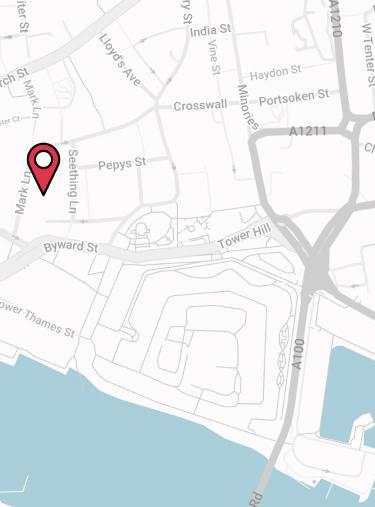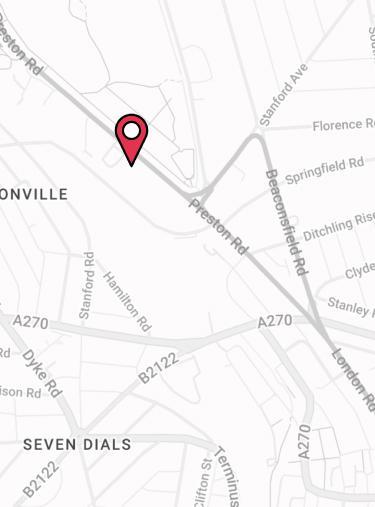
Inheritance Tax on Gifts
Inheritance Tax and Gifts: An Overview
Inheritance tax is a tax levied on your estate (your properties, possessions, cash in the bank etc.) when you die. For a single individual, it is charged at 40% on all assets (money, property and possessions) that breach the £325,000 inheritance tax threshold.
The majority of HMRC’s inheritance tax receipts come from assets that pass from the estate of a deceased individual to their beneficiaries. However, in some instances, there may be inheritance tax on gifts made within 7 years (and potentially up to 14 years) of an individual’s death.
A gift is defined as:
- Any of your assets with a value
- A loss in value when something’s transferred, e.g. if you sell your house to your child for less than it’s worth, the difference in value counts as a gift
- Forgiveness of a debt – if you loan someone money and forgive the debt without being repaid, the cancelled loan can class as a gift for inheritance tax purposes.
Inheritance tax is typically paid out of the funds in your estate and it must usually be paid before your beneficiaries get access to their inheritance.
However, where gifts have been made above the £325,000 inheritance tax threshold within 7 years (and potentially up to 14 years) of your death, the onus is on the recipient to pay the inheritance tax bill. This will be in addition to the tax due on your estate.
Giving Gifts and Inheritance Tax
While there are certain exemptions and inheritance tax gift allowances that you can make use of without triggering an inheritance tax liability, it’s a complicated area where it’s best to seek advice.
Inheritance tax isn’t typically due on gifts classed as:
- Gifts to spouses / civil partners
There’s no inheritance tax liability between husband and wife or civil partners. - The annual gift exemption
Allows anyone to gift up to a combined total of £3,000 in each tax year (6 April to 5 April) to whoever they chose. You can carry over up to £3,000 in unused IHT allowance from one tax year to the next, but you must use up all of your allowance in that tax year. - Small gifts exemption
Small gifts of up to £250 can be made to as many people as you choose – although you can’t use your annual exemption and your small gift exemption on the same person in the same year. - Wedding gifts
You can gift up to £5,000 to your children / stepchildren as a wedding gift. Smaller allowances are available for grandchildren (£2,500) and gifts to friends or other relatives (£1,000). - Gifts to charities or political parties
Certain gifts to political parties as well as those to charities, museums and universities are free from IHT. If you leave more than 10% of your estate to charity, your overall IHT rate is reduced to 36%. - Gifts for living costs
Help a former spouse, elderly dependent or child under 18 in full-time education with their living costs without any inheritance tax liability. - Gifts out of excess income
This covers regular gifts only, such as Christmas and birthday presents, but you must prove that you are able to maintain your current standard of living after making said gifts. The gifts must form a pattern of gift-giving to pass this test and the rules are complex – seek advice before attempting to reduce your estate via this avenue.
Inheritance Tax and Potentially Exempt Transfers (PETs)
Gifts to individuals – other than those exempt gifts listed above – are typically classed as potentially exempt transfers or PETs.
There’s no inheritance tax to pay on a PET at the time you make the gift, but inheritance tax may be due on the gift if you die within 7 years – and potentially up to 14 years – of making that gift from your estate.
Essentially, the PET gets dragged back into your estate if you die within 7 years of making it, which means if the value of the gift plus your residual estate exceeds your nil-rate band there’ll be inheritance tax to pay.
If you fail to live the 7 years required by HMRC, whoever received the gift will be faced with a tax bill. This is known as a ‘failed PET’. However, there is tapering relief available on failed PETs depending on how long you live after making the gift.
|
Taper Relief on Gifts |
|
|---|---|
|
Years from Gift to Death of Donor |
IHT Rate Applied |
|
< 3 Years |
40% |
|
3-4 years |
32% |
|
4-5 years |
24% |
|
5-6 years |
16% |
|
6-7 years |
8% |
|
7+ years |
0% |
Chargeable Lifetime Transfers
While most non-exempt gifts to individuals will be classed as PETs, most gifts into trusts (with some exceptions) are typically chargeable lifetime transfers (CLTs).
A CLT is so named because there is typically a 20% lifetime charge on the asset(s) being settled into the trust by the settlor (gift-giver). At the time of the transfer if the value of the gift into trust (plus any other CLTs made in the previous 7 years before the ‘current’ CLT) is in excess of the gift-giver’s nil-rate band, inheritance tax is typically due at the lifetime rate.
You may, however, have to pay inheritance tax on the gift if the settlor dies within 7 years of making the chargeable lifetime transfer, in which case an additional 20% tax will be levied to bring the IHT due up to the 40% ‘death charge’.
CLTs are also subject to periodic charges if the value of all relevant CLTs exceeds the nil-rate band on each 10 year anniversary of the settlor making the CLT.
The 14 Year Rule
With most PETs, there will be no inheritance tax to pay providing the gift-giver lives 7 years following the date of the gift. For CLTs, there will typically be no further IHT to pay other than the 20% lifetime charge providing the individual lives for 7 years after the date the gift is settled, also.
However, matters become more complicated when these two types of gift-giving have been combined before an individual passes away.
If an individual makes a CLT more than 7 years before their death and then a PET within 7 years of the initial CLT, then the earlier CLT may also be caught up for IHT calculation purposes. This potentially means gifts made to trusts within 14 years of death could be chargeable.
Illustration:
- 2007: Jane makes a CLT to a trust of £100,000
- 2013: Jane makes a PET of £250,000 to her son, John
- 2015: Jane dies, not being entitled to any other gift exemptions or allowances.
While it would initially appear that the CLT, made 8 years before Jane’s death, would be excluded from IHT calculations, matters are complicated by the 2013 PET (note that regardless of the CLT, the PET fails as it was made within 7 years of Jane’s death).
To calculate the nil-rate band available to offset the PET, events in the 7 years prior to the PET must be considered.
In this instance, the £100,000 CLT reduces Jane’s available nil-rate band to £225,000, less than the failed PET she made in 2013.
Jane’s IHT bill on the failed PET would therefore be calculated as such:
- Value of PET: £250,000
- Less available nil-rate band: (£225,000)
- Inheritance tax charged at 40% of £25,000: £10,000.
Inheritance tax would also be charged on any residual sums left in Jane’s estate, as all of her nil-rate band had been used by the failed PET.
While a CLT made within 14 years of death may not create a liability at death in itself, it could nonetheless reduce the nil-rate band available to offset a subsequent PET where death follows within 7 years of the PET and 14 years of the initial CLT.
Beware Gifts with Reservation of Benefit
When you give away a gift, it’s essential you dispose of that gift entirely. You must not retain any interest in or continue receiving a benefit from the asset you give away, otherwise the gift will fail and will be charged for inheritance tax on your death.
No matter how long you live after giving a gift it will NEVER be free of inheritance tax liability if you retain an interest in the asset itself.
A good example is what frequently happens when parents decide to gift the family home to their children but remain in residence rent-free. As the parents have ‘reserved a benefit’ it can never qualify as a potentially exempt transfer (PET).
When the parents eventually die, the full value of the property – including any price appreciation in the years since they made the transfer – will count as part of their estate and so be liable to IHT.
For this to succeed as an inheritance tax planning strategy, you must pay your children a market rent on the property to prove you are reserving no benefit in the home. This is obviously fraught with difficulties and should be discussed with a specialist before you even consider taking this course of action.
Inheritance Tax Advice
Giving away any gift apart from those specifically exempted from inheritance tax should be considered very carefully, especially larger gifts.
You might find that your death puts an unwanted inheritance bill onto your heirs, something gifting away part of your estate before dying was likely meant to avoid!
If you would like to discuss your options with one of our specialists please do not hesitate to give us a call on 02084327334 or email help@drewberry.co.uk.
- You’ll speak to a dedicated specialist from start to finish
You will speak to a named specialist with a direct telephone and email. No more automated machines and no more being sent from pillar to post – you’ll have someone to speak to who knows you. - Benefit from our 5-star service
We pride ourselves on providing a 5-star service, as can be seen from our 2274 and growing independent client reviews rating us at 4.92 / 5.
- Topics
- Inheritance Tax
- Retirees
Contact Us
125-135 Preston Road
Brighton
BN1 6AF
Cookies
Drewberry™ uses cookies to offer you the best experience online. By continuing to use our website you agree to the use of cookies including for ad personalization.
If you would like to know more about cookies and how to manage them please view our privacy & cookie policy.








